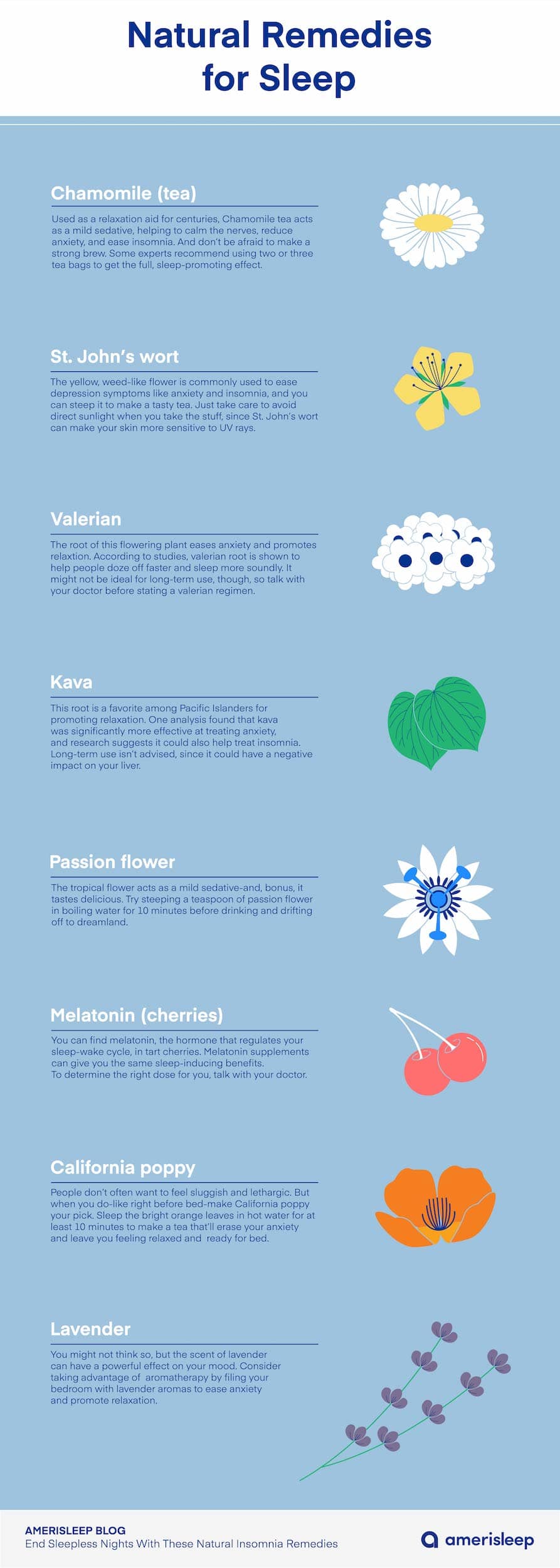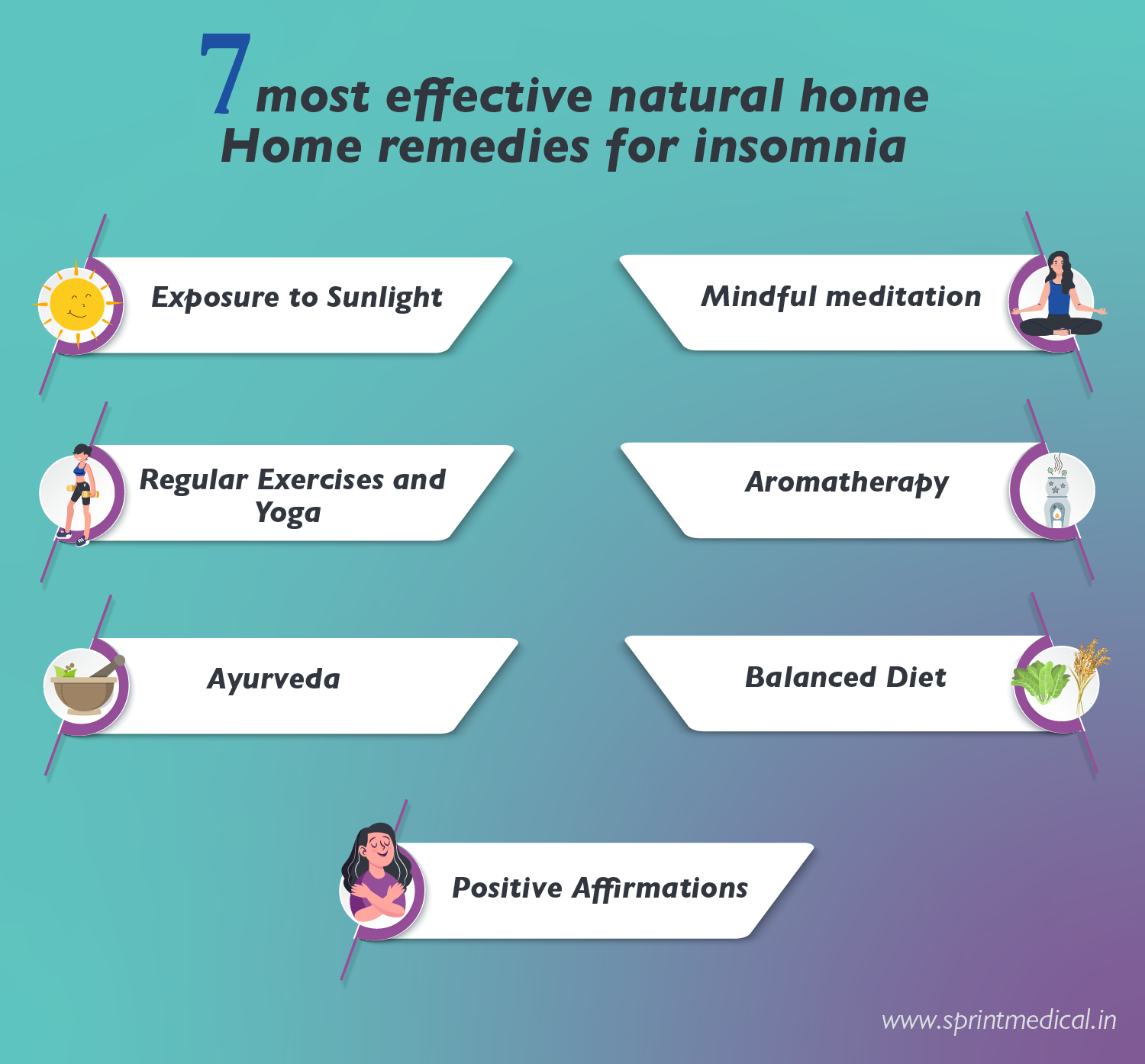Effective home remedies for insomnia include creating a soothing bedtime routine and avoiding stimulants like caffeine and electronics before sleep. Insomnia, or trouble falling or staying asleep, affects millions of people worldwide and can have a negative impact on overall health and well-being.
In addition to lifestyle changes, other natural remedies that can promote better sleep include incorporating relaxation techniques such as deep breathing and meditation, optimizing the sleep environment by keeping it cool, dark and quiet, and trying herbal remedies such as valerian root or chamomile tea.
It is important to consult with a healthcare provider if insomnia persists or worsens, as it may be a symptom of an underlying medical condition.
Understanding Insomnia
Insomnia is a common sleep disorder that affects millions of people worldwide. It is characterized by difficulty falling asleep, staying asleep, or both, despite having the opportunity to sleep. Insomnia can have a significant impact on a person’s quality of life, leading to fatigue, reduced concentration, mood disturbances, and decreased productivity.
What Is Insomnia?
Insomnia is a sleep disorder that manifests as a persistent difficulty in falling asleep, staying asleep, or both. It can be categorized into three types:
- Transient Insomnia: Lasting for a few nights or weeks, often caused by temporary stressors or environmental factors.
- Acute Insomnia: Occurring sporadically, usually due to underlying factors like medical conditions or certain medications.
- Chronic Insomnia: Persisting for at least three nights a week for a duration of three months or longer, often associated with psychological or physiological factors.
Insomnia can affect individuals of all ages, but it is more prevalent in older adults, women, and those with certain medical or mental health conditions.
Causes Of Insomnia
Insomnia can be caused by various factors, including:
- Stress: Emotional or psychological stressors can make it difficult to relax and fall asleep.
- Disruptions in Sleep Schedule: Irregular sleep patterns, inconsistent bedtimes, or frequent travel can disrupt the body’s sleep-wake cycle.
- Medical Conditions: Chronic pain, respiratory disorders, gastrointestinal issues, and hormonal imbalances can contribute to insomnia.
- Medications: Certain medications, such as those for treating allergies, hypertension, or depression, can interfere with sleep.
- Substance Abuse: Excessive consumption of caffeine, nicotine, alcohol, or certain drugs can disrupt sleep.
- Environmental Factors: Noisy or uncomfortable sleeping environments, excessive light, or extreme temperatures can hinder quality sleep.
Identifying the underlying cause(s) of insomnia is crucial in formulating an effective treatment plan. Understanding the factors contributing to sleep disruptions can help individuals make lifestyle adjustments that promote better sleep.

Credit: twitter.com
Natural Remedies For Insomnia
Struggling with insomnia can be incredibly frustrating, leaving you feeling tired and groggy during the day and affecting your overall well-being. Luckily, there are several natural remedies that can help you improve your sleep quality and combat insomnia. By establishing a sleep routine, creating a sleep-inducing environment, and leveraging herbal remedies, you can effectively manage your insomnia and enjoy a restful night’s sleep. Let’s take a closer look at each of these natural remedies.
Establish A Sleep Routine
Establishing a consistent sleep routine is crucial in regulating your body’s internal clock and improving your sleep patterns. Implement the following tips to establish a bedtime routine:
- Go to bed and wake up at the same time every day, even on weekends.
- Avoid stimulating activities before bed, such as exercising or using electronic devices.
- Create a relaxing bedtime routine, such as taking a warm bath or reading a book.
Create A Sleep-inducing Environment
Your sleep environment plays a crucial role in the quality of your sleep. Follow these recommendations to create the perfect sleep-inducing environment:
- Ensure your bedroom is dark, quiet, and cool.
- Invest in a comfortable mattress and pillows that support your body.
- Use blackout curtains or an eye mask to block out any external light.
- Eliminate any sources of noise, such as a noisy alarm clock or a ticking clock.
Herbal Remedies For Insomnia
Herbal remedies can offer a natural and gentle approach to managing insomnia. Consider trying the following herbs:
| Herb | Benefit |
|---|---|
| Valerian root | Helps promote relaxation and improve sleep quality |
| Chamomile | Has calming properties that can help induce sleep |
| Lavender | Known for its soothing effects, helping you relax before bed |
Remember to consult with a healthcare professional before trying any herbal remedies, especially if you have existing medical conditions or are taking medications.
Lifestyle Changes To Promote Sleep
Looking to improve your sleep? Try these lifestyle changes. Incorporate effective home remedies, such as creating a soothing sleep environment, practicing relaxation techniques, and establishing a consistent bedtime routine. Experience better sleep with these simple yet powerful strategies.
Manage Stress And Anxiety
Stress and anxiety can wreak havoc on your sleep, making it difficult to fall asleep or stay asleep throughout the night. To combat these negative influences, it is important to find effective ways to manage your stress levels and calm your mind before bedtime.
Create a Relaxing Bedtime Routine
Incorporating soothing activities into your evening routine can help signal to your body and mind that it’s time to unwind and prepare for sleep. Try activities such as reading a book, taking a warm bath, or practicing relaxation techniques like deep breathing or meditation.
Avoid Electronic Devices
The blue light emitted by electronic devices, such as smartphones and tablets, can interfere with your sleep by disrupting the production of melatonin, the hormone that regulates your sleep-wake cycle. Therefore, it’s advisable to limit your exposure to electronic screens at least an hour before bed.
Exercise Regularly
Regular exercise not only improves your physical health but can also significantly improve your sleep quality. Engaging in physical activity during the day helps to relieve tension and tire your body, making it easier to fall asleep at night.
Choose Suitable Exercise Times
To maximize the sleep benefits of exercise, it is advisable to complete your workout at least a few hours before bedtime. This allows your body temperature, heart rate, and adrenaline levels to return to normal before you hit the hay.
Avoid Strenuous Late-Night Workouts
While exercising earlier in the day helps promote sleep, vigorous late-night workouts can have the opposite effect. These intense activities can energize your body, making it more challenging to wind down and fall asleep. Stick to gentle or relaxing exercises in the evening, like yoga or stretching.
Limit Caffeine And Alcohol Intake
What you consume throughout the day can significantly impact your sleep patterns. Caffeine and alcohol, in particular, can interfere with your ability to fall asleep and maintain restful sleep throughout the night.
Reduce Caffeine Consumption
Limit your intake of caffeine-containing beverages, such as coffee, tea, and energy drinks, especially in the afternoon and evening. Caffeine stimulates your nervous system, making it harder to relax and drift off to sleep. Opt for decaffeinated alternatives or herbal tea instead.
Avoid Alcohol before Bedtime
While alcohol may initially make you feel drowsy, it can disrupt your sleep quality and lead to frequent awakenings throughout the night. It is best to avoid alcohol close to bedtime to ensure a more restful and uninterrupted night’s sleep.

Credit: amerisleep.com

Credit: pharmeasy.in
Frequently Asked Questions Of Effective Home Remedies For Insomnia
What Is A Fast Remedy For Insomnia?
To find fast relief for insomnia, try practicing relaxation techniques like deep breathing or meditation. Avoid caffeine and electronic devices before bed, and establish a consistent sleep schedule. Creating a calm sleep environment can also promote better sleep. Consulting a healthcare professional may provide additional guidance.
How Do I Get Rid Of Insomnia Asap?
To quickly get rid of insomnia, try establishing a regular sleep schedule, avoiding caffeine and electronic devices before bedtime, creating a calm and comfortable sleep environment, practicing relaxation techniques like deep breathing or meditation, and seeking medical or therapeutic help if necessary.
What Is The Most Effective Natural Sleep Aid?
Melatonin is the most effective natural sleep aid. It regulates sleep-wake cycles and improves sleep quality.
How I Cured My Severe Insomnia?
I found relief for my severe insomnia by implementing a consistent bedtime routine, avoiding caffeine and electronics before bed, creating a calm sleeping environment, and seeking professional help when needed.
Conclusion
Insomnia can be a persistent and frustrating issue, but there are effective home remedies that can help improve sleep quality. From creating a soothing bedtime routine to incorporating relaxation techniques like meditation and aromatherapy, these natural remedies can support a better night’s rest.
Prioritizing good sleep hygiene, incorporating exercise into your daily routine, and avoiding stimulants before bed are also important strategies to consider. By exploring and implementing these remedies, you can take steps towards a restful and rejuvenating sleep routine.
